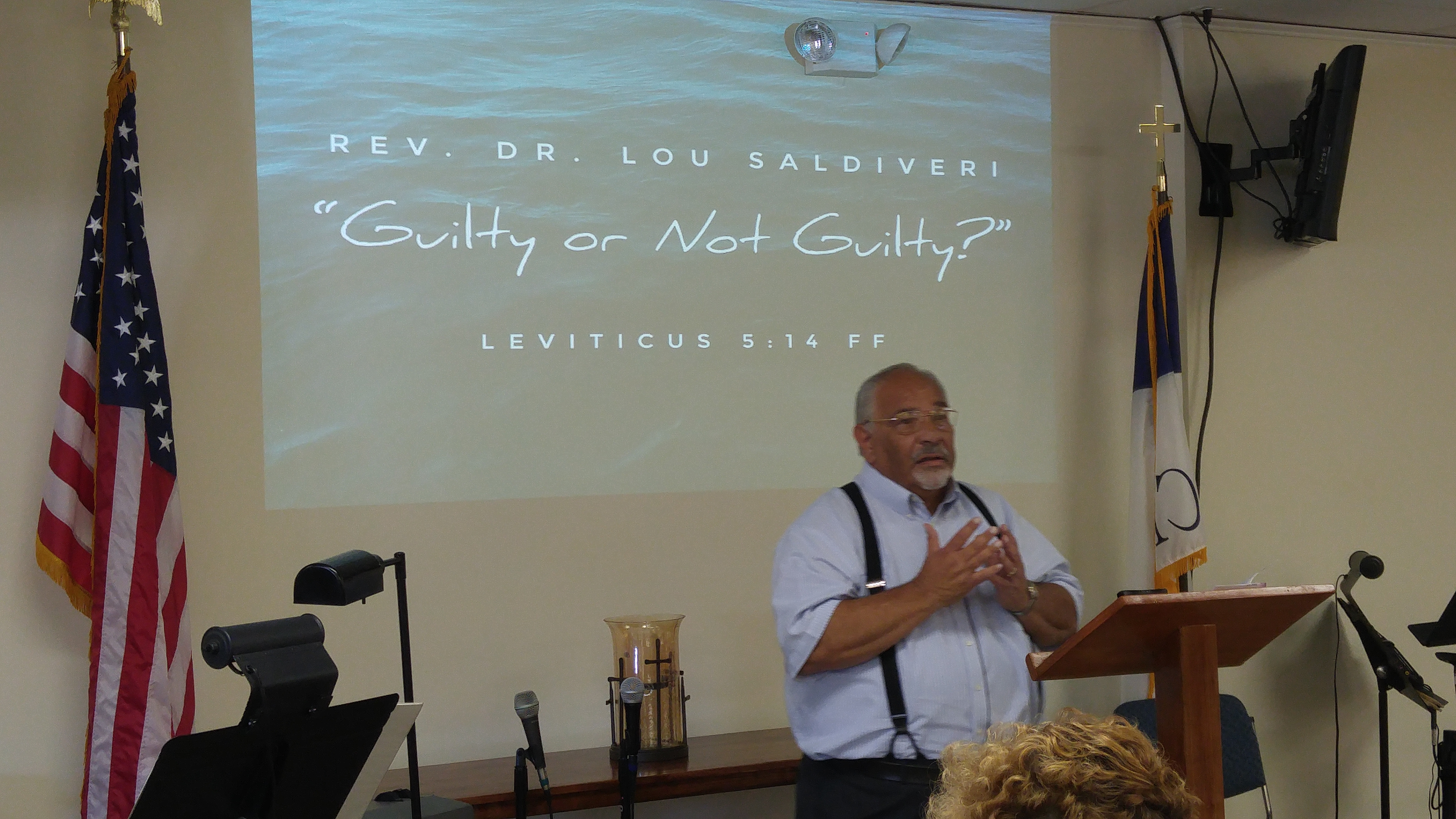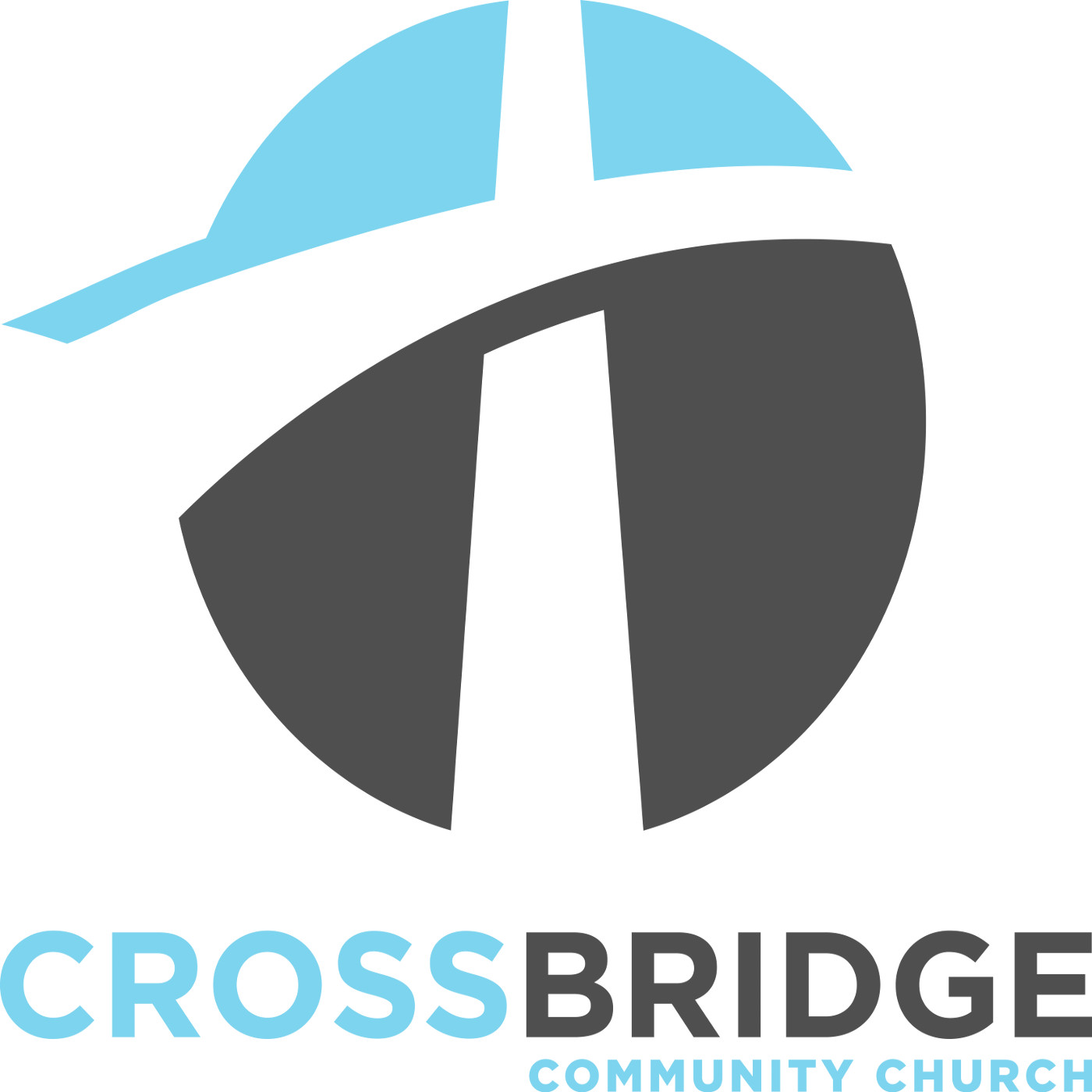
Guilty or Not Guilty?
Bible Text: Leviticus 5 | Preacher: Rev. Dr. Lou Saldiveri | Series: Sunday Morning Worship
— Pastor Lou’s Notes —
Intro:
Illustration: The Principal’s Daughter
When we talk about “guilt” in our culture, we usually think of it as a feeling. There are a few things which we need to discuss to get our focus right in this matter of guilt. First, because of the sin nature we inherited from Adam, we are naturals when it comes to blame shifting and rationalizing. Secondly, there is a difference between guilt and shame. Generally speaking, guilt needs charges of a offense, proof, and a verdict. Shame is just a feeling of embarrassment when we get caught. You and I need to look at what this passage and the Bible teaches us about the issue of guilt.
Lawrence O. Richard says, “The Bible treats guilt as a fact. In the O.T. guilt (Heb., ‘asam) has three aspects. 1) There is an act which brings guilt. 2) There is a condition of guilt which follows the act. 3) There is punishment appropriate to the act. In the N.T., guilt is a judicial concept. [The Bible Reader’s Companion, electronic ed. (Wheaton: Victor Books, 1991). Exported from Logos Bible Software, 11:05 AM June 3, 2017].
This passage forces us to consider this matter of guilt in our lives. There are four biblical principles we need to consider:
1. The First Principle is that we need to answer the question, “Are We Guilty or Not Guilty?”
1. Review the 10 commandments
2. If we are honest with ourselves,many times, we cannot even live up to our own standards
2. The Second Principle is the Legitimate Causes of Guilt
1. We are not speaking about people driven guilt trips
1. This usually feeds on our own sense of guilt instilled in us by our parents
2. This is usually a matter of a lack of spiritual maturity e.g. godly boundaries
1. For instance, when someone asks you to do something you legitimately cannot do and you say ‘no’ to the person. Without biblical godly boundaries, we may feeling guilty for saying no.
2. Legitimate guilt occurs when we violate God’s commandments
1. The Bible calls this godly sorrow which should lead to repentance
2. This is revealed to us through the Word of God and the Holy Spirit
3. Legitimate guilt occurs when we offend e.g. sin against someone else
1. This, too, is an offense against God
3. The Third Principle is The Only True Remedy for Guilt
1. The guilt offering points to the truth that when Jesus died on the cross in our place, He paid our full debt for our sin, guilt, and shame.
1. This is a judicial and legal act in the court of heaven through Christ
2. This is also a term use in banking which means paid in full once and for all
2. Note: If the offense is against another person, then the offender was required to make repayment plus a 1/5.
1. There are times when we sin against another person that we should try to make restitution in the process of asking for forgiveness.
3. The Cross is the full payment for sin once and for all
4. The resurrection is that validation of the payment by the Judge in the court of heaven
4. The Fourth Principle is Biblical Forgiveness
1. The Great Transaction: When we trust Christ as our personal Lord and Savior by faith, He takes our sin, guilt, and shame and puts it in His account and puts in our account His righteousness, forgiveness, new life in Christ, and new purpose.
2. God no longer demands from us any repayment or retribution because Christ paid it all!
Closing: One of the biggest problems in the evangelical church today is hanging on to guilt that has been resolved at the foot of the cross. If we are able to anchor ourselves in our true biblical identity, then much of the guilt can be let go so we can experience the freedom we have in Christ. Please watch this video which illustrates who we really are in Christ…
If you want to know freedom from sin, guilt, and shame, the first thing you must do is repent of sin and, by simple faith, receive Jesus Christ as you personal Lord and Savior. Then your identity is not based in our sin, failures, guilt, or shame. Our sin, failures, guilt, and shame has been and continues to be nailed to the cross the moment you trusted Christ by faith. Now we are truly free from ourselves to lovingly obey and follow Christ.
